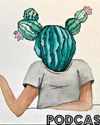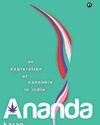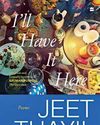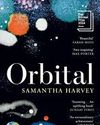At six months, Alexander rarely smiled or moved on his own. With little known about his syndrome, his parents charted their own course.

FOR THE FIRST SIX MONTHS of Alexander’s life, I wanted to believe he might get well on his own. I would often lie down on the floor and make faces at him, trying to tease out a smile. Sometimes, after lots of effort, it worked. But mostly, my son was motionless and silent, his eyes focused on nothing in particular.
It was fall 2009 and my wife, Ashley, and I had only just moved into a new home in downtown Calgary, Canada. We had a vivacious four-year-old daughter named Sloane, a grouchy Siamese cat and an infant son who was a mystery. Alexander had been born hypotonic—floppy, basically— with an abdominal hernia, a heart murmur, strange folds on his ears and a V-shaped birthmark in the centre of his forehead. The geneticist assigned to us in intensive care, Micheil Innes, knew these were markers of a genetic disorder, but he couldn’t place it.
Even after Alexander was healthy enough to come home, he remained undersized and underweight, hardly able to hold up his head. Amid the blurry rush of feeding and diapers and getting Sloane off to school, I could pretend he was just a little quiet and weak for his age. But the truth is, we often wondered if there was any awareness inside him at all.
The first tentative answer arrived on a dark afternoon in December. We were called to a small room at the Alberta Children’s Hospital where Innes explained that a piece of our son’s genetic coding simply wasn’t there. He showed us the lab results: rows of striped squiggles like some ancient alphabet and a red dot indicating the location of the missing material—near the end of the ‘q’ branch of the ninth pair of chromosomes. The precise spot, in technical terms, was 9q34.3.
この記事は Reader's Digest India の January 2017 版に掲載されています。
7 日間の Magzter GOLD 無料トライアルを開始して、何千もの厳選されたプレミアム ストーリー、9,000 以上の雑誌や新聞にアクセスしてください。
すでに購読者です ? サインイン
この記事は Reader's Digest India の January 2017 版に掲載されています。
7 日間の Magzter GOLD 無料トライアルを開始して、何千もの厳選されたプレミアム ストーリー、9,000 以上の雑誌や新聞にアクセスしてください。
すでに購読者です? サインイン

ME & MY SHELF
Siddharth Kapila is a lawyer turned writer whose writing has focussed on issues surrounding Hinduism. His debut book, Tripping Down the Ganga: A Son's Exploration of Faith (Speaking Tiger) traces his seven-year-long journey along India's holiest river and his explorations into the nature of faith among believers and skeptics alike.

EMBEDDED FROM NPR
For all its flaws and shortcomings, some of which have come under the spotlight in recent years, NPR makes some of the best hardcore journalistic podcasts ever.

ANURAG MINUS VERMA PODCAST
Interview podcasts live and die not just on the strengths of the interviewer but also the range of participating guests.

WE'RE NOT KIDDING WITH MEHDI & FRIENDS
Since his exit from MSNBC, star anchor and journalist Mehdi Hasan has gone on to found Zeteo, an all-new media startup focussing on both news and analysis.

Ananda: An Exploration of Cannabis in India by Karan Madhok (Aleph)
Karan Madhok's Ananda is a lively, three-dimensional exploration of India's past and present relationship with cannabis.

I'll Have it Here: Poems by Jeet Thayil, (Fourth Estate)
For over three decades now, Jeet Thayil has been one of India's pre-eminent Englishlanguage poets.

Orbital by Samantha Harvey (Penguin Random House India)
Samantha Harvey became the latest winner of the Booker Prize last month for Orbital, a short, sharp shock of a novel about a group of astronauts aboard the International Space Station for a long-term mission.

She Defied All the Odds
When doctors told the McCoombes that spina bifida would severely limit their daughter's life, they refused to listen. So did the little girl

DO YOU DARE?
Two Danish businesswomen want us to start eating insects. It's good for the environment, but can consumers get over the yuck factor?

Searching for Santa Claus
Santa lives at the North Pole, right? Don't say that to the people of Rovaniemi in northern Finland